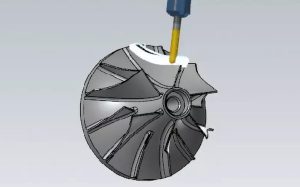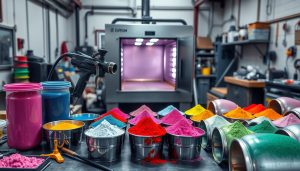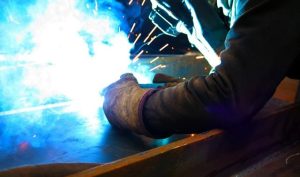In the dynamic world of manufacturing, the choice of materials for die casting projects plays a crucial role in determining the success and performance of the final product. This comprehensive guide delves into the intricacies of material selection, exploring the various options available, their unique properties, and their suitability for diverse applications.
Die casting, a versatile and efficient metal-forming process, has become an integral part of numerous industries, from automotive to consumer electronics. As manufacturers strive to meet ever-evolving demands, the selection of the right materials has become increasingly important. This guide aims to provide valuable insights to help you navigate the landscape of die casting materials and make informed decisions that will optimize the outcomes of your casting projects.
Overview of Die Casting Materials
Die casting is a manufacturing process that involves injecting molten metal into a mold cavity under high pressure. The choice of material used in the die casting process significantly impacts the final product’s quality, durability, and cost-effectiveness. In this section, we’ll explore the commonly used die casting materials and their importance in the industry.
What is Die Casting and Why Material Choice Matters
Die casting is a versatile and efficient method for producing complex metal parts with high accuracy and repeatability. The die casting process allows for the rapid and cost-effective production of a wide range of components, from small intricate parts to large, complex assemblies. The material selected for the die casting process is crucial, as it determines the final product’s mechanical properties, thermal characteristics, and overall performance.
Commonly Used Die Casting Materials
The most commonly used materials in the die casting industry include aluminum alloys, zinc alloys, and magnesium alloys. Each of these metal alloys offers unique advantages and is suitable for different applications based on their specific properties and characteristics.
- Aluminum alloys are lightweight, corrosion-resistant, and easy to machine, making them a popular choice for automotive components, electronics housings, and various consumer products.
- Zinc alloys are known for their high strength, dimensional stability, and cost-effectiveness, making them ideal for hardware, automotive parts, and various industrial applications.
- Magnesium alloys are lightweight, with exceptional strength-to-weight ratios, making them a preferred choice for aerospace and high-performance automotive components that require lightweight, yet durable materials.
Understanding the properties and performance of these die casting materials is crucial for engineers and designers to select the most appropriate option for their specific project requirements.
“The choice of material in the die casting process is a critical decision that can make or break the success of a project. Each material has its own unique advantages and disadvantages, and the right selection can greatly impact the final product’s performance and cost-effectiveness.”
Types of Die Casting Materials
Die casting is a versatile manufacturing process that allows for the creation of intricate metal parts with exceptional precision. The choice of material plays a crucial role in determining the success of a die casting project. In this section, we’ll explore the various types of die casting materials, highlighting their unique properties and applications.
Aluminum Alloys: Lightweight and Durable
Aluminum alloys are a popular choice for die casting due to their lightweight yet durable nature. These aluminum alloys offer a unique blend of strength, corrosion resistance, and thermal conductivity, making them ideal for a wide range of applications, from automotive components to electronics casings.
Zinc Alloys: Cost-Effective and High-Strength
Zinc alloys are another commonly used material in die casting. These alloys are known for their cost-effectiveness, high strength-to-weight ratio, and excellent dimensional stability. Zinc castings are often used in applications where weight and cost are key factors, such as in the production of hardware and small mechanical parts.
Magnesium Alloys: High-Performance for Precision Parts
Magnesium alloys are a high-performance option for die casting, offering exceptional strength-to-weight ratios and superior dimensional stability. These lightweight materials are particularly well-suited for the production of precision parts, making them a popular choice in the aerospace and electronics industries.
Other Materials: Copper, Lead, and Tin Alloys
While aluminum, zinc, and magnesium alloys are the most widely used die casting materials, there are other specialized alloys that find application in specific industries. Copper alloys are known for their excellent thermal and electrical conductivity, making them ideal for components in electrical and electronic devices. Lead and tin alloys are primarily used in specialized applications, such as the production of radiation shielding and solder joints.
| Material | Key Properties | Common Applications |
|---|---|---|
| Aluminum Alloys | Lightweight, durable, corrosion-resistant, thermally conductive | Automotive parts, electronics casings, consumer goods |
| Zinc Alloys | Cost-effective, high-strength, dimensional stability | Hardware, small mechanical parts, automotive components |
| Magnesium Alloys | High strength-to-weight ratio, dimensional stability, precision parts | Aerospace, electronics, medical devices |
| Copper Alloys | Excellent thermal and electrical conductivity | Electrical and electronic components |
| Lead and Tin Alloys | Radiation shielding, solder joints | Specialized applications |
By understanding the unique properties and applications of these die casting materials, manufacturers can make informed decisions and select the most suitable option for their specific project requirements.

Factors to Consider When Choosing Materials for Die Casting
Selecting the right material for a die casting project is a critical decision that requires careful consideration of several key factors. From the material’s strength, durability, and corrosion resistance to its temperature tolerance and thermal conductivity, each property plays a vital role in determining the success of the final product.
Strength, Durability, and Corrosion Resistance
The chosen material must possess the necessary strength and durability to withstand the high-pressure die casting process and the demands of the intended application. Additionally, corrosion resistance is crucial, as the material may be exposed to various environmental conditions during its lifetime.
Temperature Tolerance and Thermal Conductivity
Die casting often involves working with materials at high temperatures. Therefore, the selected material must have excellent temperature tolerance to maintain its integrity and performance under these conditions. Thermal conductivity is another important factor, as it can impact the efficiency of the casting process and the final product’s performance.
Material Cost and Availability
In addition to technical considerations, the cost and availability of the material are also crucial factors in the decision-making process. The selected material must not only meet the project’s requirements but also fit within the budget and be readily accessible to ensure a smooth and timely manufacturing process.
| Material Property | Importance |
|---|---|
| Strength and Durability | High |
| Corrosion Resistance | High |
| Temperature Tolerance | High |
| Thermal Conductivity | Moderate |
| Cost and Availability | High |

By carefully evaluating these factors, die casting professionals can make informed decisions that ensure the production of high-quality, durable, and cost-effective parts that meet the specific requirements of their projects.
Applications of Die Casting Materials
Die casting materials find a wide range of applications across various industries, showcasing their versatility and unique properties. From the automotive sector to aerospace engineering and consumer electronics, these materials play a crucial role in shaping the products we rely on daily.
Automotive Industry: Engine Components and Transmission Housings
In the automotive industry, die casting materials are extensively used for producing engine components and transmission housings. Aluminum alloys, known for their lightweight and durability, are a popular choice for engine blocks, cylinder heads, and other critical engine parts. Automotive applications of die casting materials ensure reliable performance and enhanced fuel efficiency in modern vehicles.
Aerospace: Lightweight Parts for Aircraft and Spacecraft
The aerospace industry demands high-performance materials with exceptional strength-to-weight ratios. Aerospace components such as aircraft frames, landing gear, and various structural parts are often fabricated using die-cast magnesium and aluminum alloys. These materials provide the necessary strength and corrosion resistance while minimizing overall weight, a crucial factor in aviation and space travel.
Electronics and Consumer Goods: Precision Casings and Enclosures
Die casting materials find extensive application in the production of consumer electronics and various household goods. Zinc alloys, renowned for their cost-effectiveness and high-strength properties, are commonly used to create precision casings and enclosures for a wide range of electronic devices, from smartphones and laptops to kitchen appliances and power tools.
| Industry | Die Casting Material Applications |
|---|---|
| Automotive | Engine components, transmission housings |
| Aerospace | Aircraft frames, landing gear, structural parts |
| Electronics and Consumer Goods | Precision casings, enclosures |
Advantages and Disadvantages of Common Die Casting Materials
When it comes to die casting, the choice of material is crucial. Three of the most commonly used materials are aluminum, zinc, and magnesium alloys, each with its own unique advantages and disadvantages. Understanding these material properties can help engineers and designers select the best option for their specific application.
Comparing Aluminum, Zinc, and Magnesium Alloys
Aluminum alloys are renowned for their lightweight and corrosion-resistant properties, making them a popular choice for automotive and aerospace components. However, they may fall short in terms of strength and thermal conductivity compared to other alloys. Zinc alloys, on the other hand, offer high-strength and cost-effective solutions, often used in the production of hardware and consumer electronics. Magnesium alloys, the lightest of the three, excel in precision and high-performance applications, such as in the aerospace industry.
| Material | Advantages | Disadvantages |
|---|---|---|
| Aluminum Alloys |
|
|
| Zinc Alloys |
|
|
| Magnesium Alloys |
|
|
The Best Applications for Each Material
Aluminum alloys are well-suited for applications where weight and corrosion resistance are top priorities, such as in the automotive and aerospace industries. Zinc alloys excel in hardware and consumer electronics manufacturing due to their high strength and cost-effectiveness. Magnesium alloys, with their lightweight and precision capabilities, find their niche in the aerospace and high-performance sectors.
How Shixinproto Can Help with Die Casting Projects
At Shixinproto, we offer comprehensive die casting services and unparalleled material expertise to assist clients with a wide range of projects. Our team of skilled professionals is committed to guiding you through every stage of the die casting process, ensuring you achieve the best possible results for your specific application.
Whether you’re looking to optimize your production, enhance the performance of your components, or explore new material options, Shixinproto is here to support you. Our in-depth knowledge of die casting materials, including aluminum, zinc, and magnesium alloys, allows us to recommend the most suitable solutions for your needs. We’ll work closely with you to understand your project requirements and help you make informed decisions that maximize the quality, efficiency, and cost-effectiveness of your die casting project.
Partnering with Shixinproto means you’ll have access to the latest industry insights, cutting-edge technologies, and personalized project assistance from start to finish. Our goal is to empower you to overcome any die casting challenges and deliver exceptional products that exceed your customers’ expectations. Let us be your trusted ally in unlocking the full potential of die casting for your business.
FAQ
What are the commonly used die casting materials?
How do the properties of aluminum, zinc, and magnesium alloys differ in die casting?
- Aluminum Alloys: Lightweight, good strength-to-weight ratio, and excellent corrosion resistance, ideal for automotive and electronics applications.
- Zinc Alloys: Cost-effective, high strength, suitable for hardware and consumer products.
- Magnesium Alloys: The lightest of the three, offering high performance and precision for aerospace and lightweight applications.
What factors should be considered when choosing a material for a die casting project?
- Required strength and durability
- Corrosion resistance and temperature tolerance
- Thermal conductivity and material cost
- Availability and specific industry requirements
The application and performance needs will guide the material selection process.
How are die casting materials used in the automotive industry?
- Engine parts
- Transmission housings
- Structural and functional components
These materials offer the strength, lightweight properties, and corrosion resistance required for automotive applications.
What are the advantages and disadvantages of using aluminum, zinc, and magnesium alloys for die casting?
- Aluminum Alloys: Lightweight, high strength, corrosion-resistant, but more expensive.
- Zinc Alloys: Cost-effective, high strength, but lower corrosion resistance.
- Magnesium Alloys: Lightest option, high precision, but more expensive with lower thermal conductivity.
The choice depends on the specific project requirements and budget.





